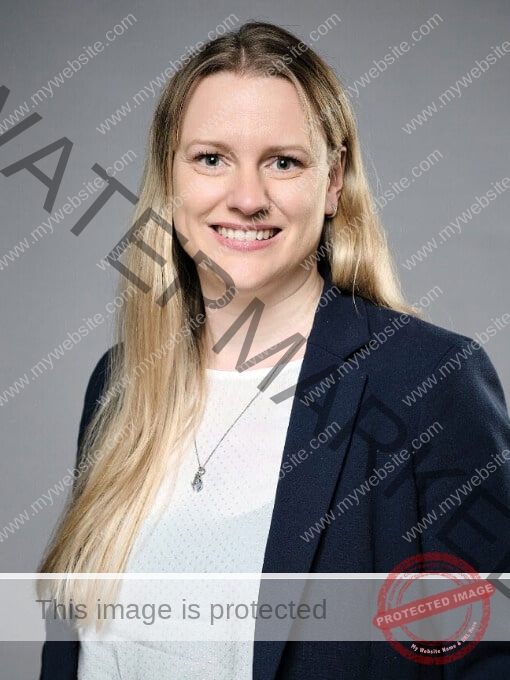Current Research at the Institute of Crop Science
Cultivating crops for tomotrrow´s climate
For years, Professor Dr. Sandra Schmöckel conducted research on salt and drought stress in plants in Australia and Saudi Arabia before heading the Department of “Physiology of Yield Stability” at the Institute of Crop Science at the University of Hohenheim in 2018. As one of the successors of Margarete von Wrangell, she investigates how agriculture can adapt to climate change and why quinoa could play a crucial role in this adaptation.
“I had a microscope and a dissection kit at home even as a child.”
Dr. Sandra Schmöckel
How I found my passion
I’ve always wanted to understand how living organisms function, even as a child. That’s why I had a microscope at home and conducted experiments with a chemistry kit, trying to unlock the secrets of life. Later, I pursued Life Sciences in my studies. However, it wasn’t until my Postdoctoral studies in Saudi Arabia that I truly realized my research’s broader significance. It’s about how we can secure our nutrition in times of climate change.
Quinoa is one of our hopeful candidates. It’s a highly nutritious plant, rich in iron and contains also essential amino acids, and unlike wheat and barley, it’s highly resilient to drought and salt. I want to explore why this is the case, and that’s why my team and I have exposed 250 different quinoa lines to extreme conditions in the greenhouse. We measured how these different lines respond to stress, such as changes in their photosynthesis rate under drought stress. However, the conclusions we can draw from greenhouse experiments have limited applicability in agriculture.
That’s why we also conduct field trials. However, in recent years, the weather has become increasingly unpredictable. One year, spring is rainy, the next year, extremely dry. This can lead to the loss of our entire harvest, and we have to start over the next year. Therefore, it takes time to derive concrete results from our experiments.
Once we know which quinoa lines are particularly drought-tolerant, we can identify the responsible genes. Gene markers assist us in this process. When we find them, we can share this information with breeders. We collaborate with Professor Karl Schmid and his team from the Department of Crop Plant Biodiversity and Breeding Informatics for this purpose.
With the help of our gene markers, they can breed drought- or salt-resistant plants, opening up new possibilities for agriculture.
Of course, other factors in the field also play a role, such as soil quality or root systems. To explore these connections, we exchange ideas with Professor Ludewig from the Department of Nutritional Physiology of Crop Plants or Professor Müller, who focuses on fertilization and soil nutrient management. We work very interdisciplinary here at the Institute of Crop Science.
In essence, we continue what the institute’s founder, Margarete von Wrangell, began 100 years ago. Her vision was to overcome hunger and crop failures and secure Germany’s food supply after World War I. In the era of climate change, we have expanded this vision to Africa, Arabia, or Australia and collaborate with these countries in various international research projects.
If we can make dried-out or salt-affected areas usable again, we can help secure the livelihoods of many people. For me, it would already be a great success if families in North Africa could grow quinoa and make a living from it. If we can achieve this through our research, then we can make a positive impact despite climate change.
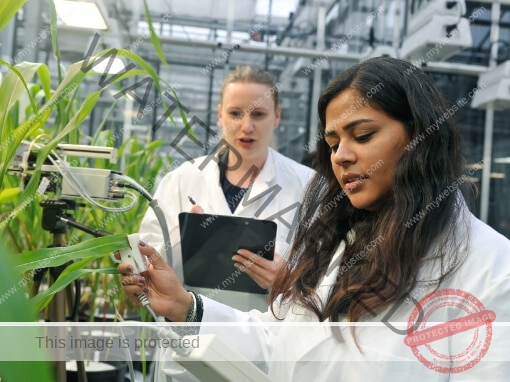
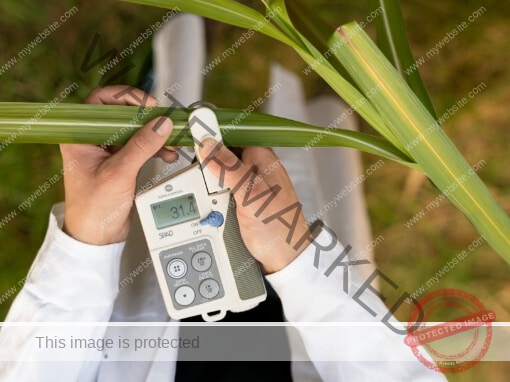
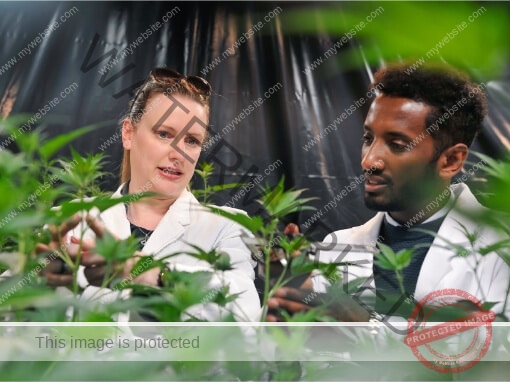
“As soon as we understand the mechanisms of salt stress tolerance, we can breed tolerant plants for saline soils.”
Dr. Sandra Schmöckel
Scientific career and family
When I returned from Saudi Arabia in 2018, I joined the University of Hohenheim directly as a junior professor in the tenure-track program. Back then, I couldn’t have imagined the significant childcare challenges that still exist in Germany. I don’t know what I would have done without the support of the Office for Equality and Diversity.
The crucial advice I received was during the female professors’ lunch at that time. Others recommended that I contact the Office for Equality when I became pregnant. After all, how can a post-doctoral researcher and a technical staff member manage my teaching and research alone while I’m on maternity leave? It’s practically impossible.
In a very short time, the Office for Equality organized financial resources to hire a research assistant. But when it came to securing a daycare spot, I was almost in despair. Not only were spots scarce, but the opening hours were reduced to mornings due to a lack of staff. This simply didn’t align with my teaching schedules.
In essence, it only worked for me because my husband was willing to take a step back in his career and work part-time. Also, the university co-funded spots at a nearby daycare facility. Through the Dual Career office, my husband also made connections to find a job that allows him to balance family and work.
“If our climate changes, we will have a Mediterranean climate in Germany with a lot of drought and extreme weather events. Our research helps to ensure that our agriculture is prepared for this.”
Dr. Sandra Schmöckel
Junior professorship
Since August 15th 2018, Sandra Schmöckel has been leading the new department for Physiology of Yield Stability at the Institute of Crop Science as a junior professor. A junior professorship with tenure track is supported by a federal-state program and is limited to six years. Afterward, it can be converted into a regular professorship.
Steckbrief
Name: Sandra Schmöckel
Research Area: Salt and drought stress tolerance in crop plants
University and Institute: University of Hohenheim, Faculty of Agricultural Sciences, Institute of Crop Science, Department of Yield Stability Physiology
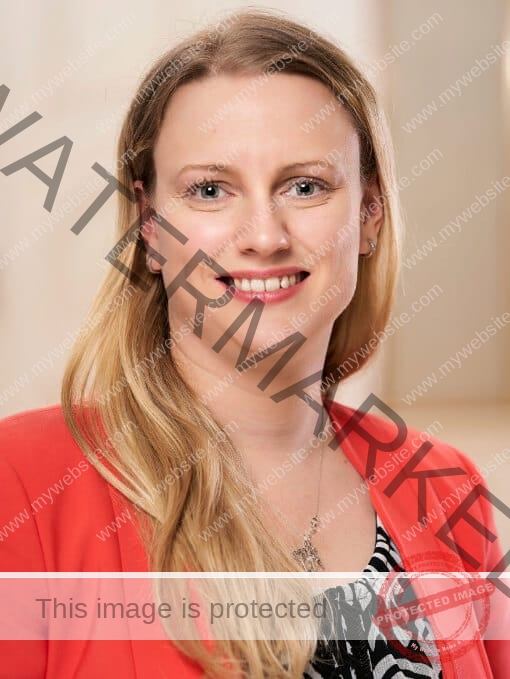
Sandra Schmöckels Academic Profile
Since 07/2024 Full Professor for Physiology of Yield Stability at the University of Hohenheim, Germany
08/2018 – 06/2024 Junior professorship tenure track (W1), Physiology of Yield Stability at the University of Hohenheim, Germany
02/2014 – 08/2018 Postdoctoral-fellow Plant Science, Center for Desert Agriculture, King Abdullah University of Science and Technology (KAUST), Saudi Arabia
03/2010 – 06/2014 PhD at University of Adelaide and Australian Centre for Plant Functional Genomics, Adelaide, Australia with internship at Department of Plant Sciences, The University of Cambridge, UK.
06/2008 – 03/2010 Master of Science Cellular and Molecular Biology, University of Potsdam, Germany
10/2005 – 06/2008 Bachelor of Science Molecular Biology/Physiology, University of Potsdam, Germany
Source
Interview with Jun.-Prof. Sandra Schmöckel on May 27, 2023

